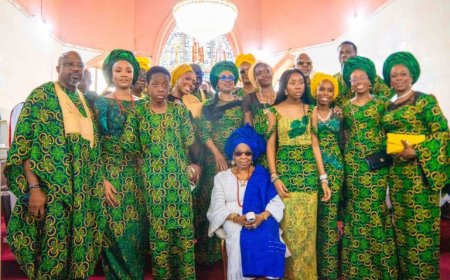Economists Urge CBN to Introduce ₦10,000, ₦20,000 Notes to Restore Naira’s Portability

By: Israel Adeleke
OPEN TELEVISION NAIJA (OTN) News reports that new report by Quartus Economics has called on the Central Bank of Nigeria (CBN) to introduce higher-denomination naira notes, specifically ₦10,000 and ₦20,000 bills, to reflect the nation’s current economic realities and ease the cost of cash transactions.
OTN News further reports that the economic review, titled “Is Africa’s Eagle Stuck or Soaring Back to Life?”, argued that the naira’s steep depreciation has rendered the ₦1,000 note, Nigeria’s highest denomination since 2005 “practically obsolete” in terms of purchasing power.
“To make the naira portable again, Nigeria can introduce higher-value bills, e.g., ₦10,000 or ₦20,000 notes, or redenominate the currency entirely,” the report stated.
According to the analysis, the value of the naira has plummeted by about 94 percent over the past two decades.
If a ₦5,000 note had been introduced in 2012, as once proposed, its equivalent value today would stand at roughly ₦50,000, the firm noted.
Furthermore, the Quartus Economics, who explained that the move to introduce higher-value notes would not worsen inflation, as often feared by the public, described such fears as a “myth unsupported by evidence,” emphasizing that inflation is driven by cost-push and demand-pull factors, not by the face value of currency denominations.
“Countries introduce higher-value notes to maintain portability after a period of significant currency depreciation, not to trigger inflation,” the report clarified.
The think tank observed that the current naira structure has made cash-based transactions cumbersome, especially in Nigeria’s vast informal economy where digital payment adoption remains low.
OTN News observes that when the ₦1,000 note debuted in 2005, it was worth about $7 at the official exchange rate. Today, that same note is valued at less than 60 US cents, making large transactions inconvenient for traders, artisans, and rural consumers who must now carry “bulky bundles of cash.”
The report further highlighted that the cost of printing, transporting, and securing the naira has become unsustainable given its low real value.
“The naira’s heavy weight is a drag on the economy and slows down growth outside the formal sector and among the urban elite,” it stated.
Quartus Economics recommended that the CBN consider either introducing ₦10,000 and ₦20,000 notes or implementing a full redenomination exercise to restore efficiency, reduce printing costs, and align Nigeria’s currency system with those of comparable emerging economies.
The analysts clarified that the proposal is not an attempt to “print more money,” but a call to modernize the naira to match the current cost of living and transaction scale.
Citing the rising prices of essential goods and services, the report noted that the cost of a kilogram of imported rice has jumped from about ₦150 in 2005 to ₦2,500, while a one-way flight from Lagos to Abuja has surged from ₦12,000 to over ₦150,000, clear indicators of the naira’s declining value.
“The naira has lost nearly all its purchasing power,” the report concluded. “A higher-value note is needed to make the naira portable again and reflect the realities of Nigeria’s economy.”
Quartus Economics added that the policy rationale behind the shelved 2012 proposal to introduce a ₦5,000 note remains valid “more than a decade later.”
What's Your Reaction?
























































